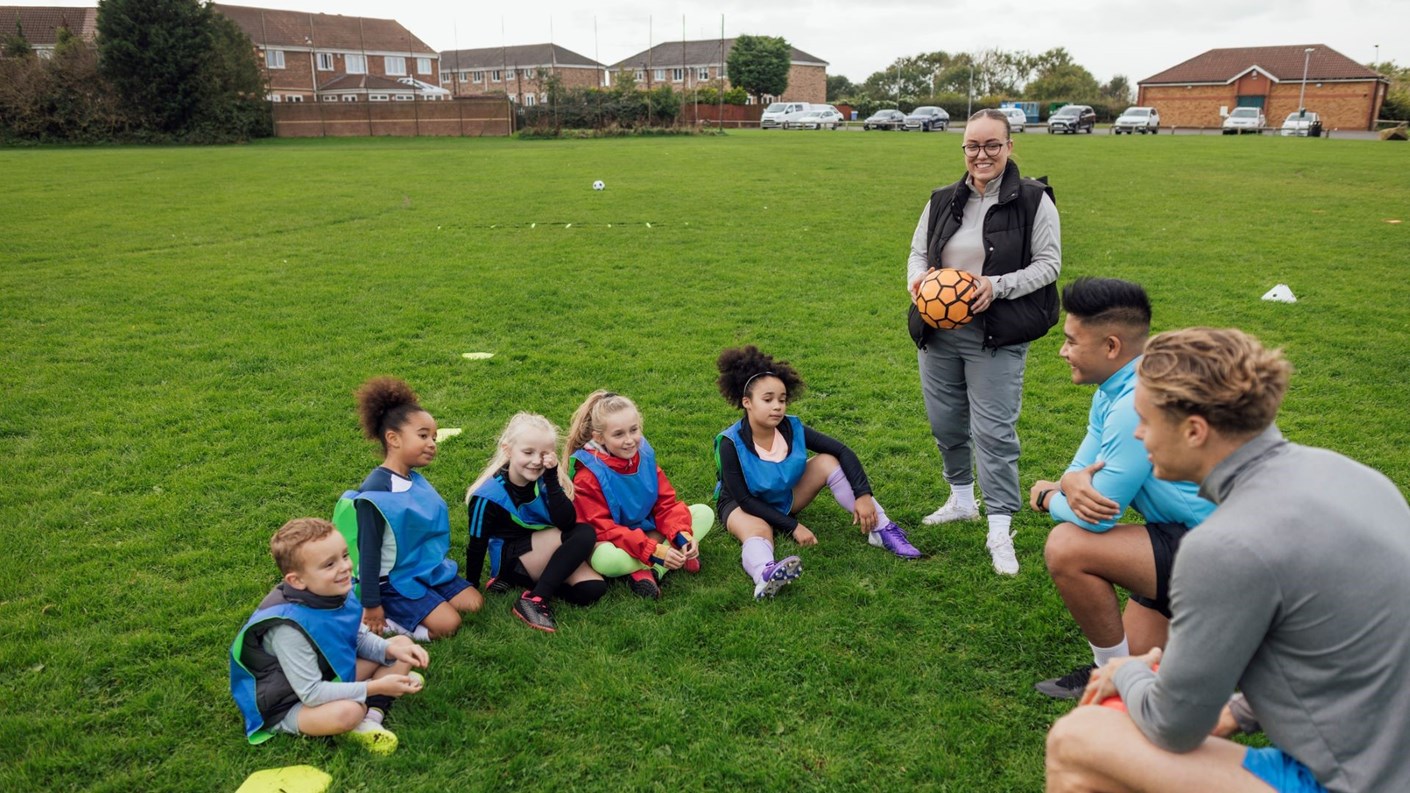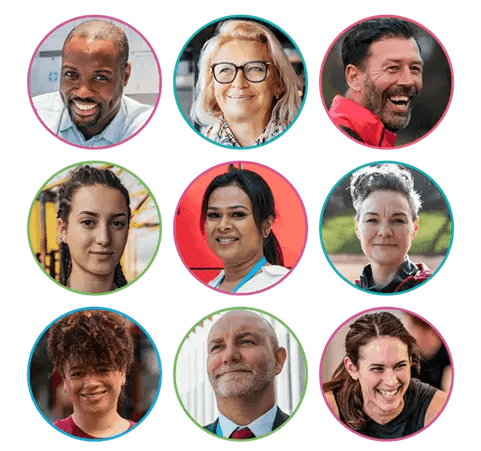Our sector’s vital role in the Youth Guarantee
CIMSPA’s Associate Director for Education explains how sport and physical activity is essential to unlocking potential and opportunity for young people

Natasha Eason, Associate Director for Education
At CIMSPA, we are proud to lead the professional development of the sport and physical activity workforce in the UK. As the sector’s chartered institute, we understand its unique potential to drive social mobility, create meaningful employment opportunities and support national economic and health priorities.
The recent launch of the Youth Guarantee and report from Skills England mark an important policy development in supporting young people into purposeful careers. For us, they represent the start of a crucial national development, and the sport and physical activity sector is ready to lead the way.
With real-world impact already being delivered, our sector is not just ready to help, it’s already doing it.
A lifeline for young people who are NEET
The government’s new Youth Guarantee, launched in May 2025, ensures that every 18–21-year-old on Universal Credit will be offered a job, apprenticeship, education or work placement within four months.
Backed by a £45 million investment and rolling out first in trailblazer areas such as Liverpool City Region and Greater Manchester, the Guarantee is designed to tackle a sharp rise in youth unemployment and long-term disengagement in learning and work. Over 900,000 young people in England are currently NEET (not in education, employment or training), a figure that disproportionately affects those from low-income backgrounds, those with SEND and those without formal qualifications. These young people facing a “triple jeopardy” are 66% more likely to be NEET.
There are also long-term consequences with these young people at risk of long-term detachment from the workforce and society, costing the economy billions and undermining social equity.
The premise behind the Youth Guarantee is that it offers more than just opportunities to learn and work, it offers hope, structure and self-worth for those young people who aren’t positively engaged in a plan for their future.
Aligning skills with growth sectors
The first report from Skills England, Skills for Growth and Opportunity, calls for a fundamental rethink of how the education and skills system meets employer demand. It highlights key growth sectors and calls for greater employer engagement, more local control and stronger pathways into roles.
While sport and physical activity is not explicitly named among the priority sectors, it is a foundational sector, essential for the priority sectors to succeed. It intersects heavily with the public health and wellbeing agendas, promotes community engagement and social inclusion, and is a proven contributor to employability and mental health outcomes.
Our sector must be recognised and resourced as a strategic partner.
A sector built for young people
Our Workforce Insight Report 2023 shows that the sport and physical activity workforce already tilts significantly younger than the national average:
- 43% of the workforce is under 30, compared to just 22% across all sectors.
- The sector is also one of the few where 16–24-year-olds make up over 20% of the workforce.
- It is a natural “first job” environment, with strong entry-level routes, part-time flexibility and clear pathways for progression.
This demographic profile makes our sector a natural fit for youth employment programmes. It’s a space where young people feel comfortable, inspired and capable of building both skills and identity.
Our sector also:
- provides visible role models that young people can relate to
- values non-technical skills (soft skills) like communication, teamwork and leadership, which young people who may have disengaged with education can often still possess
- offers jobs that have purpose, making a real difference to individuals and communities
- improves physical and mental health, creating readiness to learn and work
- provides safe spaces and trusted mentors for young people with challenging life circumstances.
A proven model of youth engagement
One of the strongest examples of sector-led youth employment is Coach Core, a national charity that supports 16–24-year-olds who are not in full-time education or employment. Coach Core apprentices work in schools, clubs and community organisations, gaining accredited coaching qualifications, paid and practical experience as well as mentoring and personal development support.
Coach Core’s model leads to consistently high outcomes, with over 83% of apprentices progressing into employment or further training within six months (Coach Core Impact Report, 2023).
It is a living, breathing example of how the Youth Guarantee can be brought to life through the sport and physical activity sector.
And the long-term impacts are phenomenal, just take a look at this case study about how one young person working in the sector is having a positive impact across his community.
The sector’s career infrastructure, ready to scale
To support the Youth Guarantee and Skills England recommendations, CIMSPA has developed the tools and infrastructure to help young people find their place in the sector.
An interactive platform, the Careers Hub introduces young people to the many career options available across fitness, coaching, leisure operations, health and wellbeing.
The Careers Hub includes:
- real-world case studies and video content
- career maps with qualification routes
- job and apprenticeship listings
- guidance for schools and youth workers.
The Training Academy for Sport and Physical Activity
A one-stop shop for the highest-quality, employer-backed training provision in the sector, the Training Academy includes:
- access to endorsed training providers and qualifications from top quality providers
- clear, consistent pathways from entry to advanced roles
- tools for employers to upskill new recruits and retain talent.
These resources align directly with the Youth Guarantee by offering entry routes, visibility and support to young people and their support networks.
Why this matters
The sport and physical activity sector doesn’t just provide jobs. It builds confidence and communication in young people, resilience and routine for those experiencing mental health or social challenges, and community cohesion. It gives young people a place and a purpose.
Our sector also has a natural ability to develop core employability skills and offers a positive learning environment, especially for young people who’ve struggled in traditional education settings.
Research from Sport England has shown that sport contributes over £85 billion annually in physical and mental health savings and economic productivity, as well as more than £14 billion in improved life satisfaction alone.
Also, as the Sport for Development Coalition highlights, sport-based programmes have been especially effective in tackling youth unemployment, violence reduction and cost-of-living pressures.
Our call to action
To deliver on the promise of the Youth Guarantee and the priorities within the Skills England report, CIMSPA recommends:
- formally recognising the sport and physical activity sector in youth skills and employment strategies
- scaling up proven delivery models already delivering impact in terms of employability
- using the Careers Hub and Training Academy as key entry points to support people into learning and careers within the sector
- encouraging employers in our sector to take on and train young people by removing barriers and increasing flexibility.
Building futures
The Youth Guarantee gives young people a clear message: you matter, and your future is worth investing in. We echo that message at CIMSPA and we are ready to turn it into reality.
Our sector is dynamic and full of opportunity. With the right support, it can become one of the UK’s most effective routes to employment, inclusion and lifelong wellbeing for young people.


